
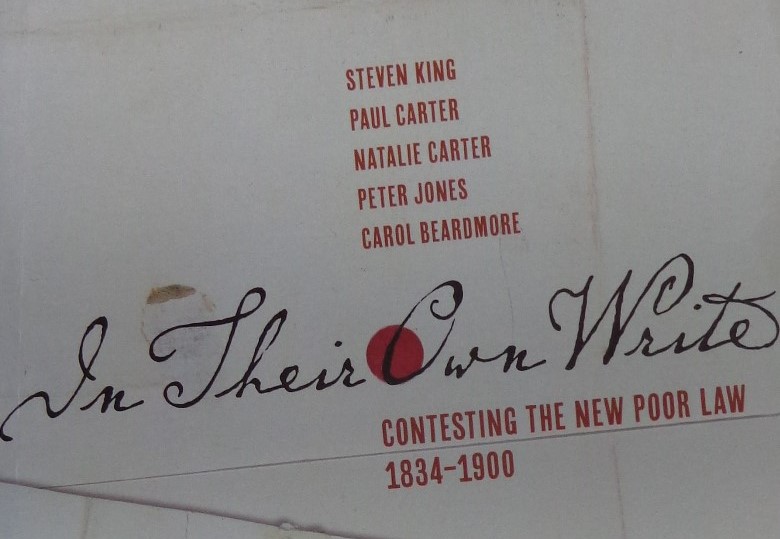
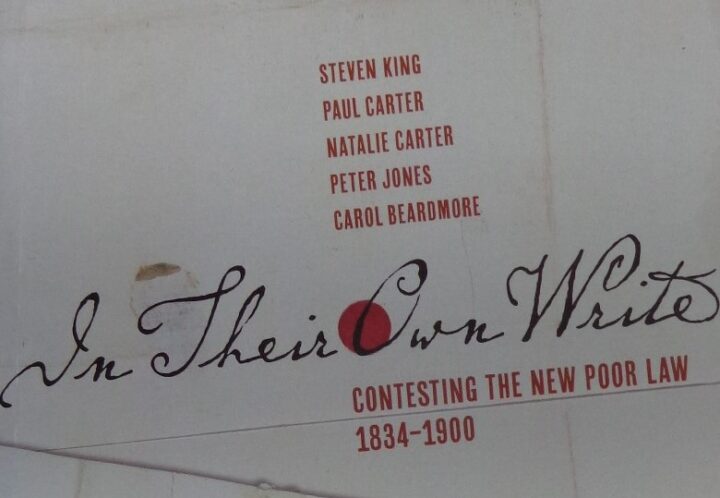
A major new book on nineteenth century poverty co-authored between staff at The National Archives and Nottingham Trent University has won the North American Victorian Studies Association’s (NAVSA) prize for best book in the field published in 2022.
In Their Own Write: Contesting the New Poor Law, 1834–1900, by Steven King, Paul Carter, Natalie Carter, Peter Jones and Carol Beardmore, focusses on letters from English and Welsh paupers, the wider poor and their advocates, that are held at The National Archives in record series MH 12: Poor Law Union Correspondence. For the first time the history of nineteenth century English and Welsh poverty has been produced based on the testimony of the poor themselves.
Dr Paul Carter, Principal Records Specialist, Collaborative Projects, The National Archives said:
‘We are thrilled that our book has been recognised in this way and are honoured that the North American Victorian Studies Association (NAVSA) has chosen our volume as best book in field. This underpins the importance of archival records research in surfacing voices not usually heard. In most cases, history records the views of the political and economically powerful; but in this case we have the concerns, fears and demands of the poor laid bare giving us an exceptionally clear and rich understanding of what life was like for the poor in Victorian times.’
Professor Steven King, Professor of Social and Economic History, Nottingham Trent University said:
‘The main theme of the book examines and explains how the Victorian poor (including those in workhouses), used letter writing to the central poor law authority in London to try and make their life and living conditions better. They complained of ill treatment, medical neglect, lack of food, punishment regimes etc. as well as making positive arguments for such things as paid employment through public works and rights for medical care. These instances of letter writing demonstrate an agency not often attached to the Victorian poor – but one we have demonstrated again and again throughout this book.’
In their citation, the judges for the prize stated that the book provides a “…history from below of the New Poor Law [that] ensures that the voices of the poor will necessarily be part of future studies of social welfare, government administration and information management, disability, gender politics, and Victorian periodicals and media”.
There are many thousands of letters, petitions, witness statements etc. by which the poor complained of their treatment when bound by necessity to ask for “poor relief”. Although the Victorian poor had a legal right to claim relief it was less explicit in the legislation that they have a right to relief. Therefore, relief itself was contested throughout the Victorian period. These records, and thus the voices of the poor themselves, were bound into the 16,741 (rather large) volumes of poor law correspondence now held by The National Archives. The vast majority of these letters, petitions and statements, have been previously overlooked and underused until the commencement of our Arts and Humanities Research Council (AHRC) funded project. The historic poor then were rarely silent about their condition – they have been shouting at us from the archive.
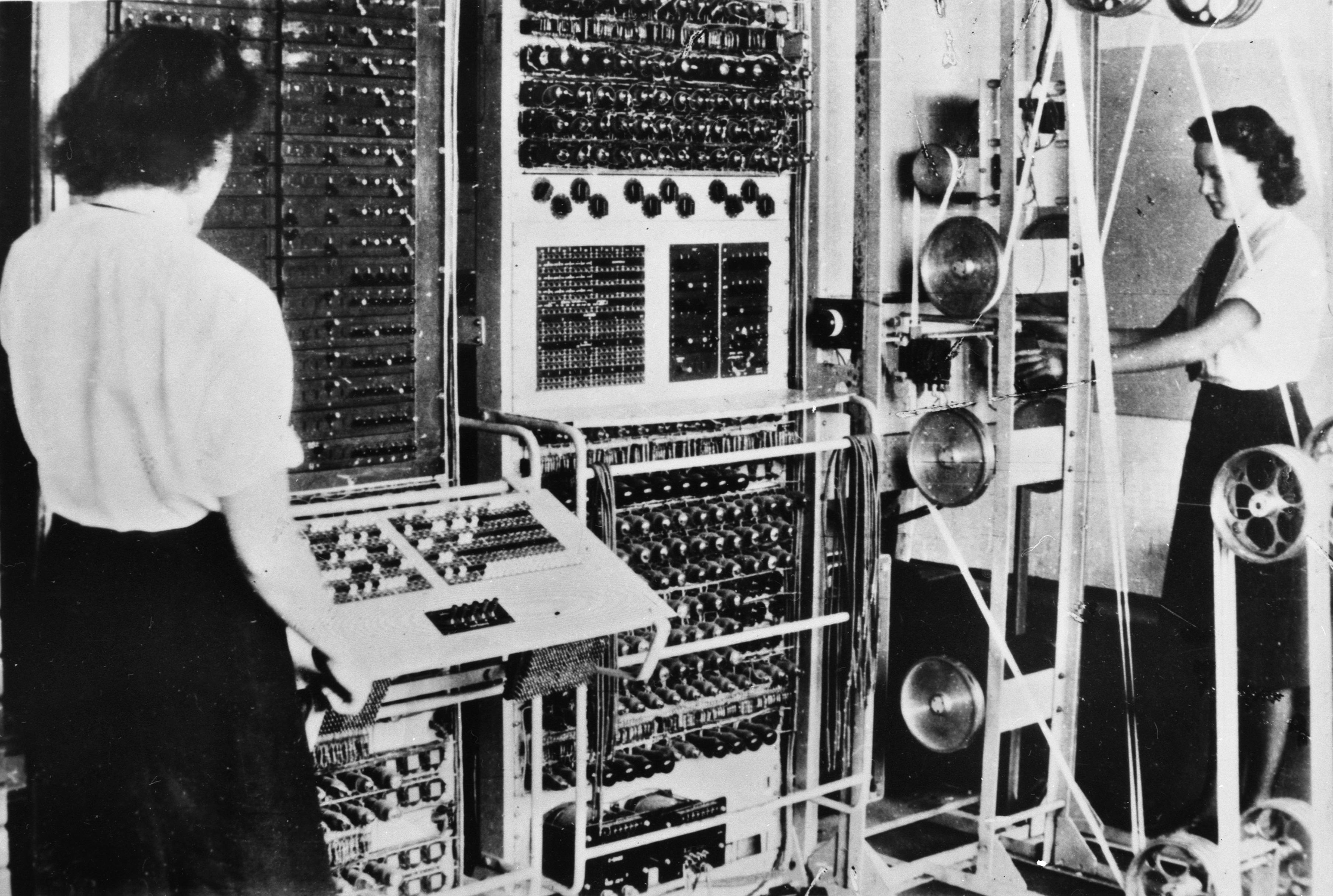
On Monday 9 October, Discovery (our online catalogue) and some related services will be closed for essential maintenance between 08:30 and 17:30 BST.
During this period, you won’t be able to:
- Search for records
- View catalogue descriptions
- Download digitised records
- Order copies of documents
- Order closed record research requests
- Use Discovery’s application programming interface (API).
Our Manage Your Collection services will also be unavailable.
The planned maintenance will not affect the rest of our website, including the online shop, image library or paid search services. You will also be able to book a reading room visit and register for a reader’s ticket.
If you have booked a reading room visit for Friday 13 October, please ensure you order your documents by Sunday 8 October to avoid the disruption.
If you need to submit a Freedom of Information request for a closed record on 9 October, please use our online contact form.
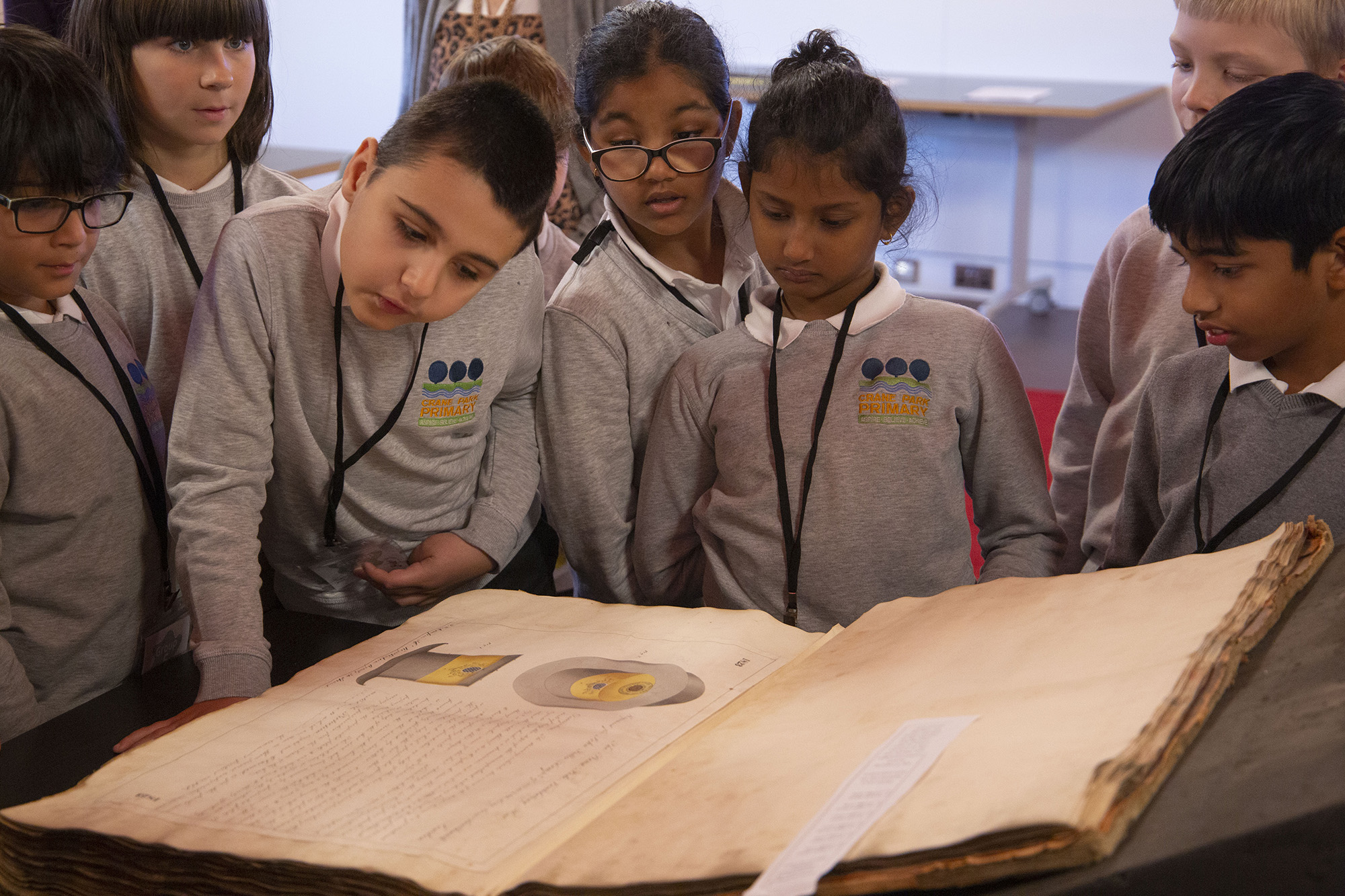
Our award-winning education service provides invaluable support for teachers and students with a full range of learning resources and taught sessions covering the span of British history from the medieval period to present day. We also provide a dedicated learning programme for students with Specialist Educational Needs and Disabilities.
Our approach to education is rooted in a belief that history should be an active investigation of the past. Our highly skilled team specialises in teaching using original sources, drawn from our unique and extensive collection of public records.
Booking now open for our taught sessions
Our popular taught sessions, covering a huge range of topics and available online and in person, are now available to book for the spring term. We have increased the number of onsite sessions we are offering. In these workshops, at The National Archives in Kew, children get the opportunity to see and handle original documents. We offer a huge range of workshop topics including:
Significant Women (KS1)
Treasures (Year 3 and 4)
Mangrove Nine (KS3 &4)
Migrants to Britain (KS3 & 4)
We are running workshops to mark LGBTQ+ history month in February 2024. In our KS4/5 Hidden Love session students get the chance to explore what state and police records can reveal about spaces that LGBTQ+ people used in the 1920s and 30s. These include vibrant Soho clubs like Billie’s and Shim Sham, as well as the lonely-hearts publication ‘The Link.’ Book for morning and afternoon sessions on Tuesday 6 February and Thursday 8 February 2024.
Online resources
We have just published two new lessons to support teachers and students. The first, on May Fourth Movement 1919, explores how the Paris Peace Conference led to a mass protest movement in China.
This new lesson offers an important angle on the history of China when learning about the Treaty of Versailles. It explores China’s role at the Paris Peace Conference and explains why the May Fourth Movement was a turning point for China and significant for China’s relationship to the West. At this conference, Chinese delegates insisted on having the land occupied by the Japanese returned to China. However, the ‘Great Powers’ (Britain, France, Italy, Japan, and the United States) refused. This started the May 4th protest movement across China. This is the first of our three lessons on the history of China. Others will follow on the Chinese civil war 1945-49 and the Cultural Revolution.
Our second new lesson covers the life of Bulaya Chanda, soldier and ‘showman’. He is believed to be one of six Black Africans to have served on the Western Front during the First World War. He changed his name in 1915 from Bulaya Chanda to Samson Jackson. In the 1920s, he started using the name Chief Luale (Luali) for his career on the stage. Bulaya Chanda’s fascinating life and experiences challenge popular beliefs about the First World War and inter-war period. His daughter, Joan Robson was four years old when her father died in 1935. Joan’s personal archive documents have been used within this lesson with documents from the Colonial Office and War Office, and census.
Finally, we are happy to present another new video in the Unboxing the Archives series. Here, Dr Laura Robson-Mainwaring introduces MH77/84, the original correspondence related to the introduction of the NHS. For all teachers and students exploring history of the National Health Service, this video is a great place to start and find more out about the early days of the introduction of our National Health Service.
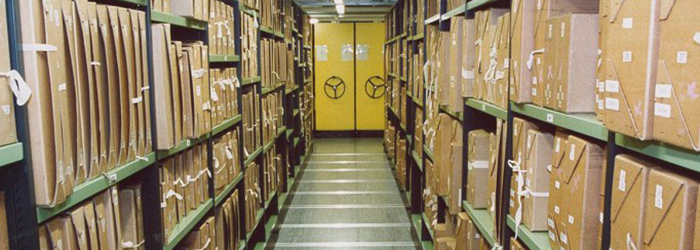
 Last year, we temporarily withdrew access to the record series, FCO 141 (Foreign and Commonwealth Office and predecessors: Records of Former Colonial Administrations: Migrated Archives) because we found evidence of historical preservation treatment. This indicated that insecticide had been used. External testing of the documents confirmed this, and following consultation and testing with occupational hygienists the risk to people was assessed as minimal and we returned the record series to the Reading Rooms with additional safe handling procedures in place.
Last year, we temporarily withdrew access to the record series, FCO 141 (Foreign and Commonwealth Office and predecessors: Records of Former Colonial Administrations: Migrated Archives) because we found evidence of historical preservation treatment. This indicated that insecticide had been used. External testing of the documents confirmed this, and following consultation and testing with occupational hygienists the risk to people was assessed as minimal and we returned the record series to the Reading Rooms with additional safe handling procedures in place.
Further documentary research into the historic use of insecticides on documents has identified some further record series which may have been treated with insecticides in the same way as FCO 141.
The record series affected can be found at this link
Using the knowledge we acquired last year, we are keeping the records available for ordering and viewing but with the same additional handling procedures that are used for FCO 141.
When viewing any of the records from the series above, please follow the handling procedures below: –
- Records will be viewed in a separate room within the main Reading Room and must be ordered in advance to ensure you are allocated a seat on the day you wish to visit.
- We will provide disposable Nitrile Gloves for you to wear while using the documents.
- If you are using mobile phones, cameras, laptops, and any other objects while viewing the documents, they must be wiped down with the materials provided prior to leaving the Reading Room or after handling the documents.
- Please refrain from touching your face, eyes or mouth whilst viewing the records, and wash your hands thoroughly with soap once finished.
If you have any questions, please speak to staff in the Reading Room. All other Reading Room rules should be followed.
Frequently Asked Questions Regarding Additional Records
- Are any other record series likely to have been treated in the same way?
As part of our continuing care and preservation of the collection we are now aware of the need for further testing of our collection for the potential presence of pesticides as a result of historic preservation treatments. We have identified other record series that were potentially created and initially stored in similar environments to FCO 141.
It is possible that other items from the late nineteenth century to the 1970s may have been treated to prevent documents being destroyed by insects. We are aware that in some parts of the world these types of preservation techniques may have been more prevalent. However, pesticides and insecticides have been used all around the world to prevent collections from being damaged by insects and mould. Historic records indicate that many libraries and archives were applying a variety of insecticides to their storage spaces in the past. Whether contaminants persist on other items, and at concentrations high enough to cause concern, is a topic that requires further research. It is therefore important that readers always follow proper hygiene when handling documents: avoid touching the face and wash hands before and after handling of items, especially before consuming food or liquids.
- Are the other records likely to be withdrawn from the Reading Room?
Colleagues are working to understand the potential presence of historic pesticides in further records within The National Archives. Last year when we tested the FCO 141 series, we consulted with occupational hygienists to assess the level of risk and to advise us of safe handling guidelines.
With appropriate measures in place, we returned the record series to the Reading Rooms. Working under these guidelines, the newly identified records will remain in the Reading Rooms and the public will be able to order and view them with certain additional guidelines in place i.e., looking at the documents wearing gloves provided by TNA and washing hands upon completion of their viewing. As a result of the need for additional handling measures, the series will be advance order only. We will keep the public updated and advise of any further changes.
- Should I be worried – I have looked at some of these new records?
From our testing of FCO 141, we know that the risk to health was and remains minimal, assuming that readers have been following our Reading Room handling guidance.
- Are you going to test again?
Currently TNA is working with collection experts to understand the potential presence of historic pesticides in further records within The National Archives. It is possible that we will carry out further tests on these newly identified documents. The health and safety of our visitors and staff is a priority for us and we want to understand the processes documents have gone through prior to being transferred to TNA.
Frequently Asked Questions regarding records series FCO 141
- Why did you withdraw the record series FCO 141?
In 2022 while working with the records, staff observed that some documents had stickers stating that insecticides had been used in the binding of the documents. The whole series was temporarily withdrawn while we investigated if insecticides remained on the documents.
- What did the tests entail?
The tests were carried out in two ways – non-invasive/non-destructive testing by X-ray fluorescence spectroscopy to detect heavy metals (mercury, lead, arsenic), and invasive/destructive testing using Gas Chromatography-Mass Spectroscopy to detect and identify organic insecticides (DDT, Lindane, dieldrin, and similar).
- What did the tests show?
The results indicated that the items were contaminated with historic organic pesticides (DDT, Lindane, dieldrin, pentachlorophenol, and 1-chloronaphthalene). The glue of several items also tested positive for mercury.
- What do these results mean for readers and those handling the documents?
We allow access to records in the FCO 141 series but there are certain safety protocols to observe. You must wear gloves when looking at records from FCO 141. This is to protect you from any transfer of historic pesticides to your skin. Our guidance, stating that gloves are not required when looking at all other documents, remains in place.
- I’ve handled the documents, should I be worried?
The tests we carried out to identify the insecticides and to understand the risk to people handling the items indicated that the acute risk to health is minimal, assuming that readers have been following our Reading Room handling guidance.
- Where did the insecticides come from?
Records indicate that insecticides were applied as a preservation method by bookbinders, staff, archives, and libraries historically. The insecticides were either directly sprayed on shelves and items or incorporated into the binding glue used to attach the covers to bound books, notebooks, and ledgers, to prevent insects from feeding on the paper. Some, though not all of the items in FCO141 contain stickers or stamps indicating treatment.
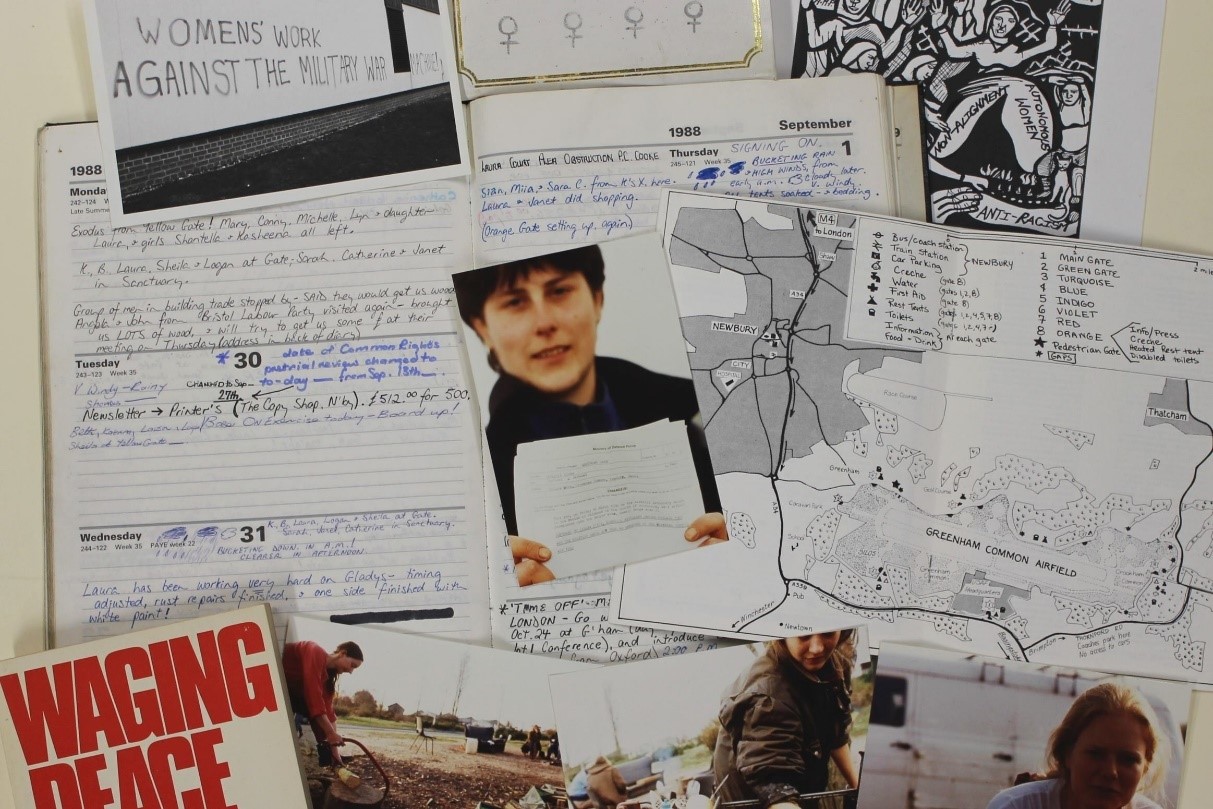
Archives Revealed has awarded 10 new cataloguing grants, totalling nearly £350,000, to archives across the UK.
The funding programme is a collaboration between the Pilgrim Trust, the Wolfson Foundation, and The National Archives. It funds cataloguing to ensure that significant archive collections, representing the lives and perspectives of all people across the UK, are made accessible to the public for research and enjoyment.
The successful cataloguing grant applicants are:
- Cadbury Research Library, University of Birmingham – £35,000
- Dorset History Centre – £35,000
- Falmouth Exeter Plus – £35,000
- National Library of Scotland – £35,000
- Oxford University Museum of Natural History – £35,000
- University of Dundee Archive Service – £32,000
- Museum of the Order of St John – £35,000
- North Lanarkshire Council – £34,000
- Fuel Productions Ltd. – £20,000
- Amberside Trust – £35,000
Jeff James, Chief Executive and Keeper of The National Archives said: “With our partners the Pilgrim Trust and the Wolfson Foundation, we are thrilled to award Archives Revealed cataloguing grants to these 10 archives.
“We have no doubt that their projects will be huge successes and will open up incredible but previously inaccessible collections for the benefit of everyone.”
Paul Ramsbottom, Chief Executive of the Wolfson Foundation said: “We are pleased to continue our partnership with The National Archives and the Pilgrim Trust to catalogue significant collections from across the UK.
“These grants open up precious but hard to access collections, and the 10 archives supported this round are no exception.”
Sue Bowers, Chair of the Archives Revealed Panel and Director of the Pilgrim Trust said: “The Pilgrim Trust is delighted to see 10 cataloguing grants awarded to help unlock and make accessible these exciting and diverse collections about UK heritage.
“The quality of applications remains extremely high and the popularity of the Archives Revealed grant programme shows a real demand to ensure archive collections are available for all to enjoy.”
The archive services that have been funded this round will use their grants to catalogue an interesting and engaging variety of collections, covering subjects such as healthcare, natural science, politics, the arts, and notable historical figures.
The Dorset History Centre will use the grant to catalogue their UNESCO-inscribed Thomas Hardy collection, bequeathed to them by the author upon his death. Similarly, the Cadbury Research Library at the University of Birmingham plans to ‘Unlock the Avon Papers’, a collection made up of the personal and political papers of former British Prime Minister, Anthony Eden, creating opportunities for learning and engagement.
The Museum of the Order of St John seek to, for the first time, make the early archives of the St John’s Ambulance Service accessible and searchable; revealing almost 150 years of history.
Oxford University’s Museum of Natural History meanwhile will be looking to ‘Unearth the Buckland Archive’, unlocking the collection of pioneering 19th-century geologist and theologian William and Mary Buckland (née Morland).
Paul Smith, director of Oxford Museum of Natural History, said: “We are absolutely delighted to receive this award from the Archives Revealed Cataloguing Grant fund.
“This funding will help us preserve and record Buckland’s archive so that his pioneering contributions to 19th century science can be accessed, enjoyed, and studied by all. We cannot wait to share this collection with the world.”
Fuel Theatre will use their grant to open their collection to the public, telling its stories of how UK artists come to realise their vision.
Also exploring their arts-based collection will be Amberside Trust, who seek to explore the representations of industrial change in the northeast of England.
The National Library of Scotland will co-curate catalogue descriptions of five archives created by women active in campaigning for peace, democracy, and against nuclear proliferation in Scotland. The project will be enlivened by inter-generational conversations between female activists.
The newly awarded grants bring the total number of cataloguing projects supported by Archives Revealed to over 50, many of which have already made enormous progress in opening up their collections.
Find out more about all the cataloguing projects funded by Archives Revealed
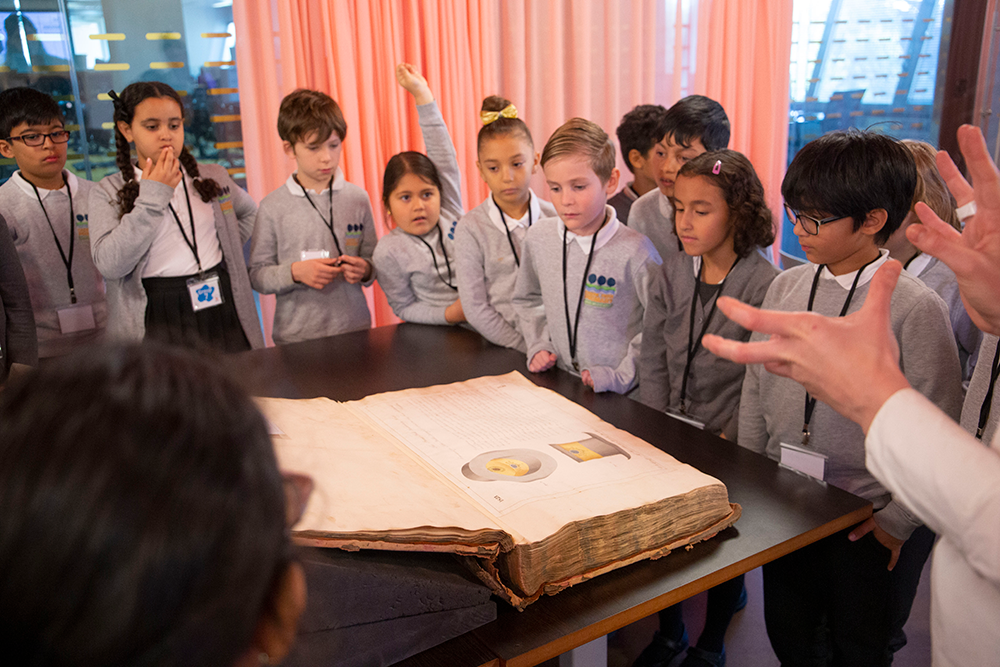
Today, we share the priorities in our Archives for Everyone 2023-27 strategic plan. This opens a new chapter in our transformation, outlining our vision for the next four years and looking ahead to where we want to be by 2038, when we will celebrate the bicentenary of the Public Record Office.
In April 2019, we made a commitment to become the ‘21st Century national archive’ – inclusive, entrepreneurial, and disruptive. In the four years since, much has changed in the world, and we have changed too. We have found new ways of working, we have found new ways of reaching people and we have become still more important to the life of the nation as a source of memory, evidence, and public value.
Our new strategic priorities published today reaffirm our commitment to our vision: to the transformation of The National Archives to meet the present-day challenges of our historic mission, to a creative approach to these challenges, pioneering a new kind of cultural and heritage institution, and to make good on our unique promise and potential.
Over the next four years we will bring the archives of Parliament together with our own to become the archive of the UK state, comprising records of the executive, legislature and judiciary.
We will complete the single biggest transfer in our history, approximately 10 million service personnel records from the Ministry of Defence. In addition, we will further develop our ability to connect people with our collection in person, online and through education at all levels. We will continue to implement our new research programme increasing our funding and developing pathways for enhanced research.
We will also complete a business case for a new regional location to complement our Kew headquarters, one that is rooted in and distinctive to its setting and that will meet our future storage needs, strengthen archival networks and enhance our public engagement and outreach.
Jeff James, Keeper and Chief Executive of The National Archives, said: ‘Four years ago we committed to the vision of becoming an archive for everyone: inclusive, entrepreneurial and disruptive. With our 2019-23 goals achieved we are now publishing our ambitious priorities for the next four years.
‘This is an exciting time for us. The National Archives is an essential resource for our democracy, and an asset for future generations. Our conviction is that archives are for everyone, and that archives change lives for the better.
‘This plan allows us to build on that conviction and create a living, digital archive that preserves the contemporary government record while widening access to our historic record and leading the organisation into the next its third century.’
Professor Andrew Wathey, Chair of The National Archives Board, said: ‘The National Archives is one of the world’s great collections, and I feel privileged to be leading its Board and working alongside a group of people who are ambitious and passionate about opening up archives and our nation’s history to the widest possible audience.
‘Over the next four years, our strategic plan sees us developing as an outstanding example of a state archive, growing in outlook and stature, and, in the true spirit of Archives for Everyone, drawing out the value of archival collections to people across this country and around the world.’
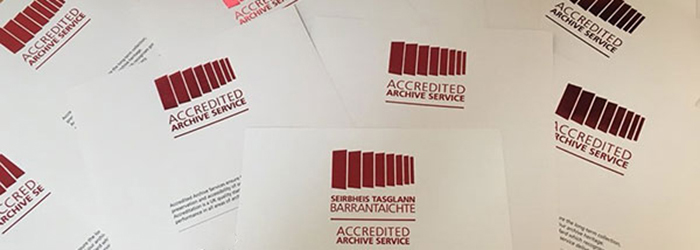
Following a recent Archive Service Accreditation Panel, the following archive services have been awarded accreditation:
- Carmarthenshire Archives
- Institution of Engineering and Technology
- National Museum of the Royal Navy
Archive Service Accreditation is the UK wide standard for archive services. By attaining accreditation, archive services demonstrate that they meet the standard for collections management and access to collections, showing resilience and the ability to manage changing circumstances successfully.
All accredited archive services must apply again for accreditation six years after their initial award to retain their accredited status. By achieving accreditation for a second time these archive services have demonstrated a commitment to continuing development of their service and the effective management of change.
At the same panel meeting the following archive services were awarded accreditation for the second time:
- Anglesey Archives
- Berkshire Record Office
- Devon Archives and Local Studies
- History of Advertising Trust
- Pembrokeshire Archives (moved to provisional award)
- Rambert Archive
- Somerset Archives and Local Studies
- Westminster City Archives
Archive Service Accreditation is supported by a partnership of the Archives and Records Association (UK), Archives and Records Council Wales, National Records of Scotland, Public Record Office of Northern Ireland, Scottish Council on Archives, The National Archives, and the Welsh Government through its Museums, Archives and Libraries Wales division.
View the full list of accredited archive services
Find out more about Archive Service Accreditation
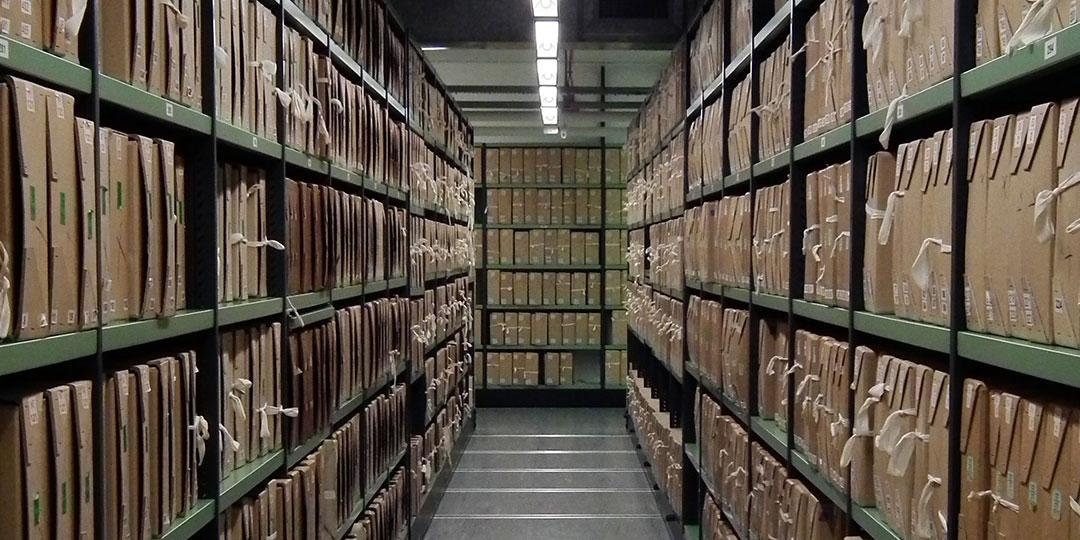
Thursday 20 July 20
This week, we released Cabinet Office files covering Tony Blair’s Labour administration (PREM 49), miscellaneous appointments to various public positions (PREM 5) including the Poet Laureate and the Office of Astronomer Royal, and office diaries from John Major’s time as prime minister (PREM 32).
Some of the issues in the PREM 49 files include:
- Home affairs
- Regional policy
- Relations with other countries
A selection of files in this release have been digitised and are available to view online, any non-digitised files are available to view in the public reading rooms at The National Archives, Kew. You can search for all files using our catalogue, Discovery.
You can also find out more about our previous file releases.
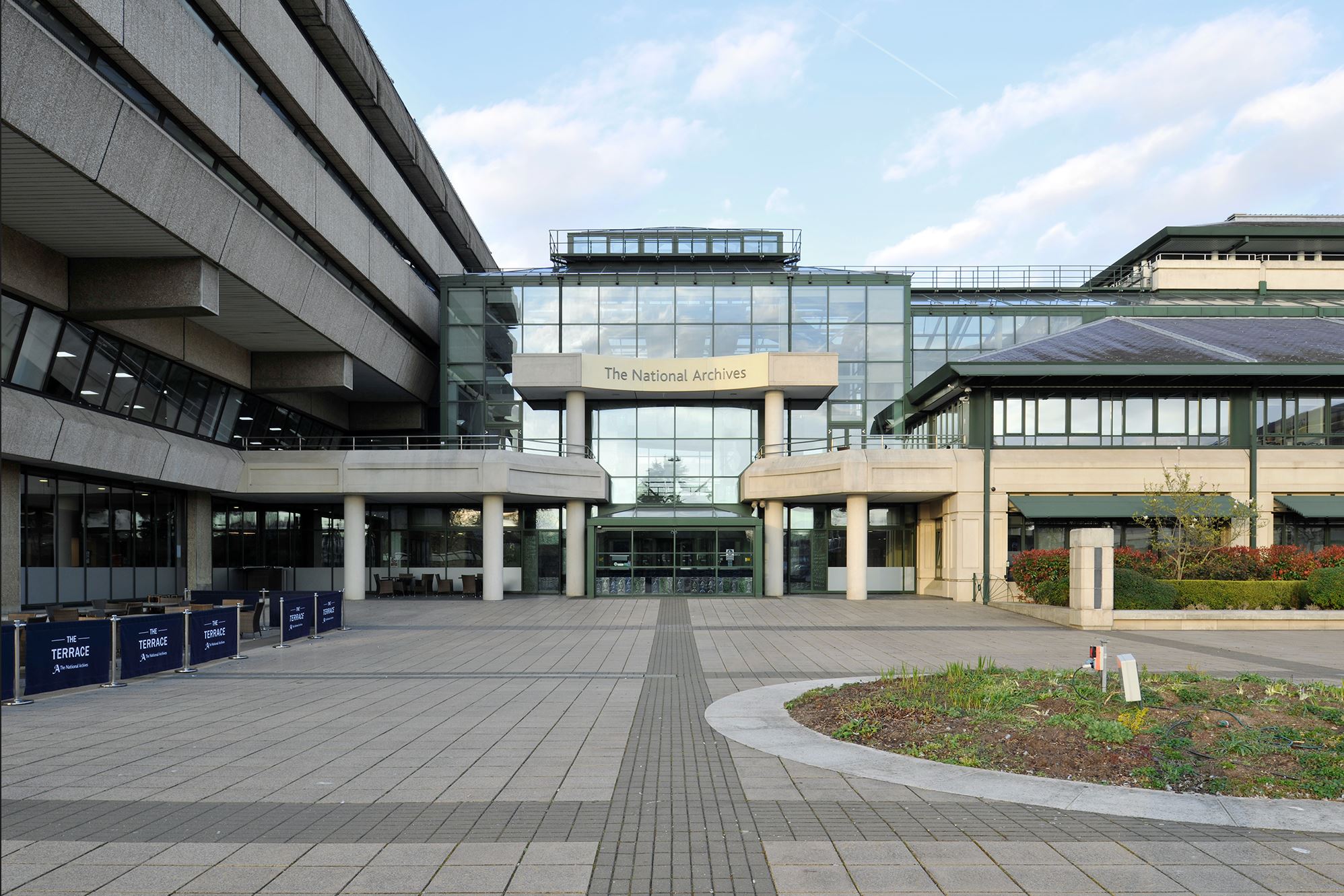
Would you like to represent the views of archive users and help to improve our services? If you are a regular archive user then we would love to hear from you, as we are seeking new voluntary representatives to join our User Advisory Group (UAG).
The group gives our user community the opportunity to participate in our planning and decision-making processes, helping make The National Archives an archive for everyone.
Representatives are expected to represent and speak on behalf of different sections of our user community. As well as attending quarterly meetings, each representative has a responsibility to engage with members of their user communities, to share information and gather feedback.
We would particularly like to hear from you if you think you could represent one or more of the following user groups:
- Diversity & Inclusion: those who represent LGBTQ+, ethnic minority communities and other diverse groups who use archives
- Academic Users
- Student Users
- On-site Personal Interest Users
Prospective representatives should be able to demonstrate they have the qualities to actively participate in the group, including:
- Willingness to express the views of their communities in the setting of a large meeting
- Time to prepare for meetings, including reading papers and networking.
- Ability to think strategically and see the bigger picture.
Quarterly meetings are usually held at The National Archives in Kew with an option to join virtually by video conference – the meetings are usually scheduled on Tuesdays during working hours. Dates and times are published well in advance and delegates are expected to make every effort to attend. Delegates may claim travel expenses.
We ask prospective representatives to commit to a minimum term of one year’s service. Find out more about the current representatives and the groups that they represent.
How to submit an expression of interest
If you would like to express interest in representing one of the groups listed above, please email UAGrecruitment@nationalarchives.gov.uk with the following information:
- Indicate in the subject line of your email that it is an expression of interest
- Indicate which sections(s) of the user community you would like to represent; if you list more than one, please rank them in order of preference
- Check the list of the sections of the user community which are already represented; if you feel that there is a group that we have not listed, and that you would like to represent, please specify this
- Tell us about your experience as an archive user and why you feel that you would be suitable as a user advisory group representative (please write no more than 150 words)
- Give examples to show that you have the personal qualities required as a representative (please write no more than 150 words)
- Indicate your ideas and suggestions for how you would disseminate details of the group to the user community or communities that you would be representing, and how you would gather feedback (please write no more than 150 words).
Representatives will be selected based upon the information provided.
The closing date for expressions of interest is Friday 4 August 2023.
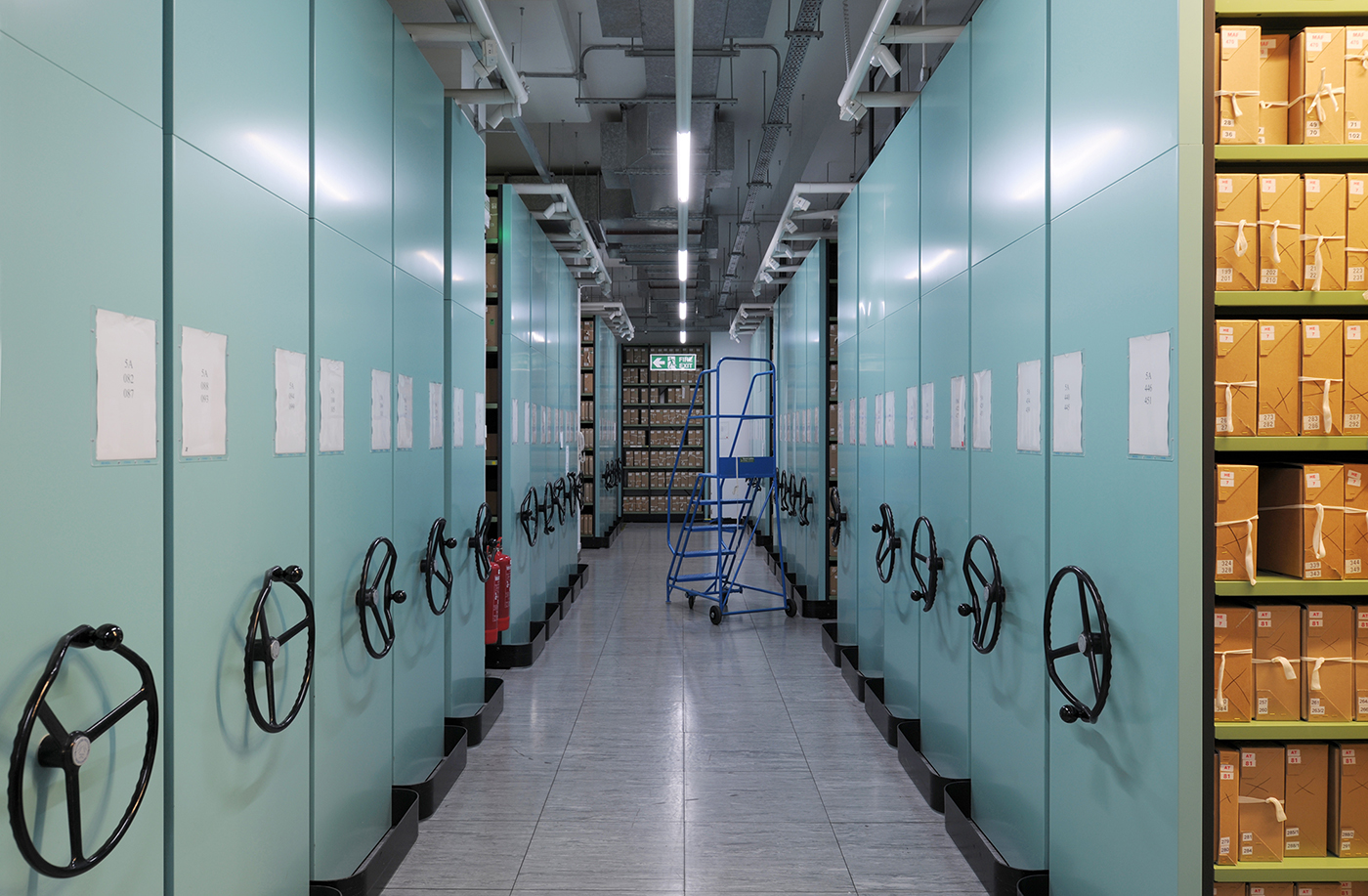
On Friday 21 July our document reading room and map and large document reading room will close an hour earlier than normal at 16:00.
Document ordering will close at 14:30 and all documents will need to be returned by 15:50. We will not be able to issue any readers’ tickets after 16:00, and our Live Chat service will operate with reduced capacity from 16:00.
Our open reading room, library, exhibition and other spaces will be open until 17:00 as usual, and other online services will be unaffected.